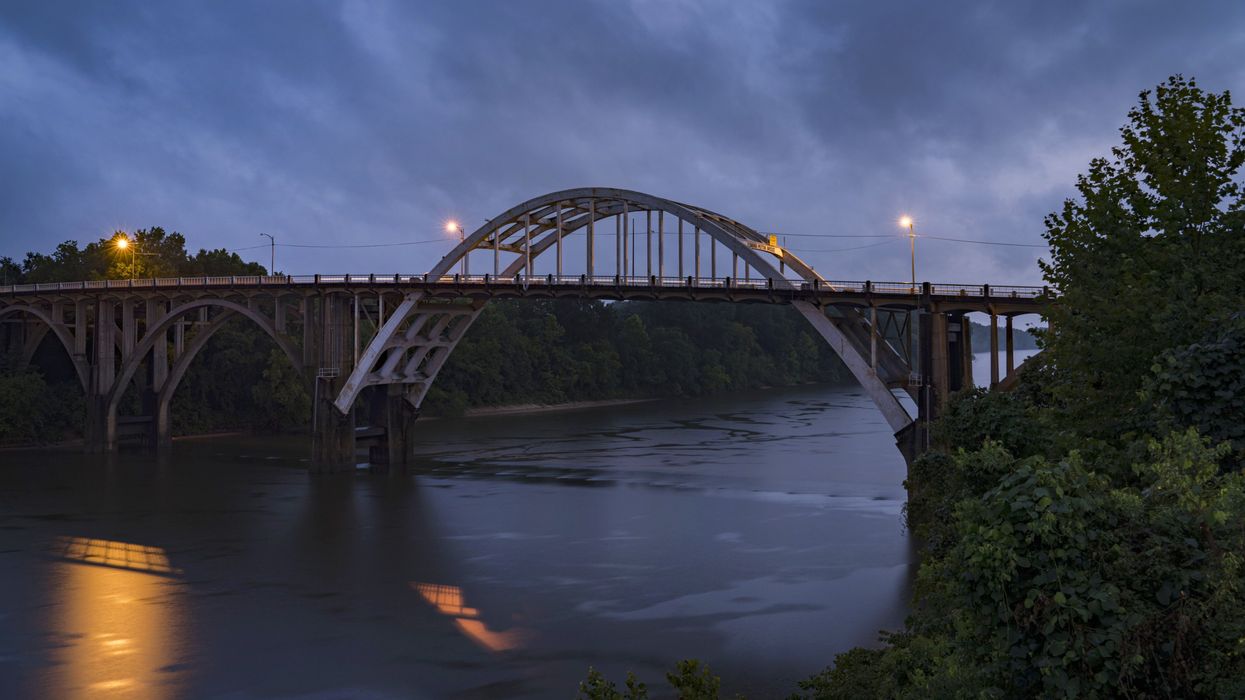Harwood is president and founder of The Harwood Institute. This is the latest entry in his series based on the "Enough. Time to Build.” campaign, which calls on community leaders and active citizens to step forward and build together.
Just recently, I was in Selma, Ala., giving a keynote address at the local NAACP’s annual banquet in honor of the 1965 Voting Rights Act. Selma and the Edmund Pettus Bridge are iconic in American history.
The Voting Rights Act, whose seeds were firmly planted in Selma, remains one of the most important pieces of legislation in our history. It’s a declaration that community is for all of us, not just some of us. That when we vote, we all get an equal say. That we are on a journey together.
Back in 1965, Selma led us across the bridge and showed us a better future. From that time forward, whatever happens in Selma will always be played out on a national stage, with people everywhere watching. Now, nearly 60 years later, I believe Selma can lead us across the bridge and show us the way forward again.
In fact, I am counting on Selma.
Still, the reality is most people throughout our country see Selma in just one of two ways. The bridge and that iconic moment from the past, with many Americans now making yearly pilgrimages there. Or its modern disrepair, with empty storefronts, dilapidated homes and pothole-filled roads.
Yet if you really look at Selma — if you are willing to see all of it — you will see the people of Selma and that Selma’s can-do spirit is alive and well. Residents there are proud to call the community home. And new examples of building are happening all over the community.
But here’s what I told people at the NAACP banque:. Physical buildings are important; people are more important. If Selma is going to lead us over the bridge again today, they need to build community first and foremost.
The good news is that if you really look at Selma, you will see that it is not stuck in the past. People there want to lift each other up and rebuild their community. Selma is poised to lead us forward. To focus on building community in a way that renews hope, I asked those at the NAACP banquet to wrestle with four questions that people throughout the community have continually asked me. They are just as critical for the country to wrestle with.
- How can we start moving forward? Our programs and strategies are important, but they are not sufficient. In my experience, the No. 1 predictor of whether or not a community moves forward is the health of its civic culture. From how we work together to whether leaders are in tune with what matters to people, to the presence of organizations that bring people together across divides and spark shared action. Moving forward requires giving our frayed civic culture renewed attention. Ignoring it only exacerbates the prevailing negative conditions in society.
- How can we activate more allies? We have to get real that in America today, most people have been driven out of the public square and are hunkered down; in communities like Selma, many are suffering from acute or chronic trauma. To bring them back requires patience, an open door, time and a declaration of what we are for instead of battle cries about what we’re against. Perhaps most of all, we must demonstrate proof that what we do together will make a difference in people’s daily lives. We must make the community a common enterprise. This is the path forward.
- How can we accelerate and deepen change? We too often write off anything that isn’t comprehensive, complex, new and shiny, even costly. But we’ve all seen large efforts start with fanfare only to fade away. Or we want to take on everything at once and be all things to all people. But that’s a recipe for being nothing to no one. Let’s rethink how we create change from “bigger is better” to “start small to go big.” And in doing so, we must commit to shifting from just “getting together” to actually “working together.”
- How can we create more belief? Creating change is a journey. Belief is the fuel for that journey. Thus, on our common journey, we must lift up positive stories of change in our communities. That’s how we get people to reimagine themselves as builders, doers and contributors. In short, we must make the invisible visible to inspire ourselves and others to believe again.
It was clear from my time in Selma that people there have what it takes to answer these questions. In fact, Selma’s fighting spirit is something we’d do well to tap into as a nation.
The eyes of America are on Selma. We needed the community back in 1965 to show us the way forward. We need Selma again today at yet another critical moment in American history. I believe they can take us across that bridge once more and into a brighter future.




















